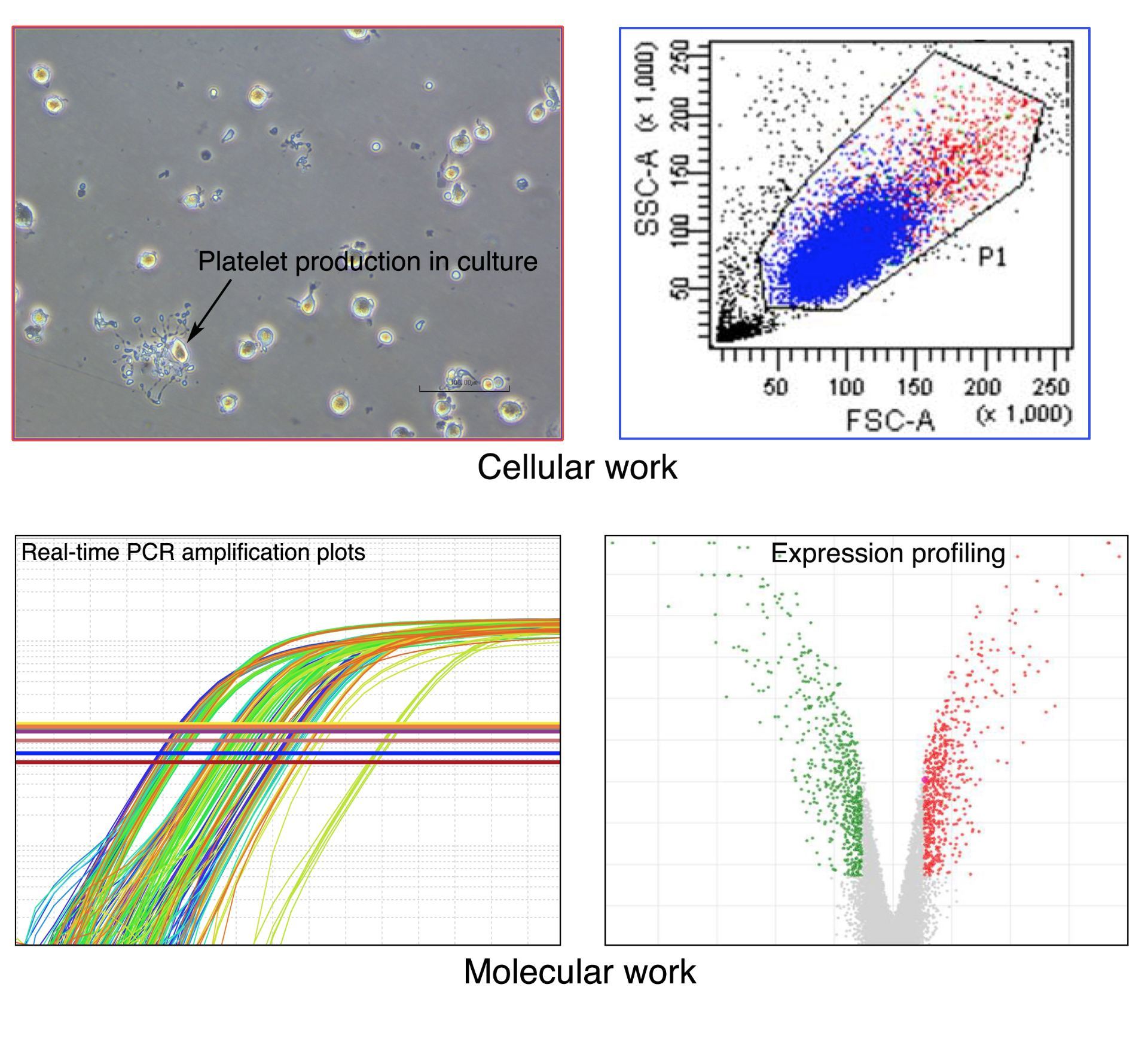The MegBio research plan
Our overall aim is to identify cell pathways that drive megakaryocytic cancers, find new determinants of disease and outcome, and identify potential new targets for treatments.
The steps involved in our research are –
- Molecular profiling of samples from past patients with megakaryocytic disorders to identify the types of mutations and cell pathways deregulation that occur in disease (retrospective study). This will help guide our work on newly enrolled patients (prospective study).
- Determine the mechanism of disease development through experimental cell culture models of human cells.
- Determine clinical correlations between changes we identify and patients’ disease features and outcomes.
- Translate assays we develop in the research laboratory to the clinical environment.
Our methods will initially focus on types of signalling that regulate megakaryocyte maturation, in particular those that require intracellular calcium. Our recent work found that intracellular calcium pathways are diverted in leukaemia to support cancer growth. Intriguingly, these pathways are amenable to modulation by pharmaceuticals, so we hope further research gives us clues for novel treatments.
MegBio workflow
Retrospective study
Looking back in previously diagnosed patients – determine molecular changes such as cancer gene mutations and identity cell pathways that are deregulated in disease
Prospective study
In new patients – confirm molecular changes found in the retrospective study arm, determine their clinical significance and role in disease development through experimental studies in disease models.
Outcomes
Diagnostic and prognostic value of molecular changes determined
Potential targets for new treatments identified
Ethical approvals
MegBio has ethical approvals from the Ministry of Health Health and Disability Ethics Committee, references16/CEN/91 (prospective study) and 16/CEN/92 (retrospective study) and locality approvals for the study to be conducted at the three DHBs within the Auckland region.
Types of research studies we do:

